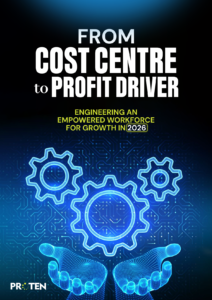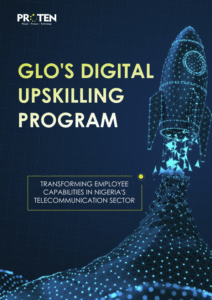Welcome to the job market! A landscape bustling with career options and opportunities. You must be new here. Maybe you recently got your degree, or you decided to wait a while and leverage some skills before getting ready.
The bottom line is that you’ve entered a new phase of your life where you will use your fresh knowledge and skills to impact any business within a five-mile radius of you. Congratulations! You’re now part of the vibrant job seekers. Unfortunately though, being a fresh graduate short of a straight connection pipeline, you are now classified as unemployed.
And that’s why you’re here, reading this. You need help navigating through the maze that is the job market. You’ve probably heard advice from pillar to post and come in contact with the dark alley guy.
And at this point, you already feel pressure from a journey you haven’t even embarked on because, boy, are you about to be in for a ride. But don’t fret. As long as we’re by your side, you have nothing to worry about.
We’ve been in the game of guiding employers for over a decade. With our recruitment and outsourcing services, we’ve been able to pierce the minds of many of the biggest employers of labour, and we know what they want.
That’s why we said you have nothing to worry about. Starting here, we’re going to give you insight that will build you into the career giant you want to be. To begin, here is our basic advice to you that you can use and brace yourself for the workforce:
1. Your College Is a reservoir.
Most people don’t know this, but where you graduated from can do much more than just giving you a degree. Most higher institutions provide a wide range of support, guidance, and resources to help students and alumni in their career or skill development and job search efforts.
It can be in the form of a dedicated department, an alumni membership platform, part of a non-profit organization, or simply an independent business or government agency. This is called a career service, and more universities in Nigeria have been urged to develop theirs since 2023. It’s important to take advantage of this because that way you can have access to guidance, resume reviews, mock interviews, and even job postings.
In addition to this, your alumni network is very important. You can get a job from a recommendation for someone who graduated and started working way before you. Having this gives you more of an advantage over other job seekers than you think.
2. Tailor your Resume and Cover Letter.
No. We don’t mean sewing. Put the scissors down, please.
When we say tailor your resume and cover letter, we mean customizing them specifically for each job application. This involves highlighting relevant skills, experiences, and accomplishments that align closely with the requirements of the job you’re applying for. By doing this, you demonstrate to hiring managers that you are a suitable candidate for the position, which can help you stand out in whatever job you’re applying for.
Additionally, you should probably quantify your achievements. If they already weren’t before, employers are now looking for measurable qualities in your resume. Saying something like “I increased sales.” makes the achievement look vague, because now the question is, by how much did you increase sales? And only a few people will have the time to want to find out enough to grant you an interview. And don’t forget that other job seekers are waiting for a chance.
3. Build Your Online Presence.
“I’m not a social media person” is not an excuse. We’re in the age of technology and social media. If emails aren’t being sent, then LinkedIn profiles are being viewed. Either way, everyone is watching. Your professional life, that is. If you want people to know you’re qualified for any role you apply for, you’re going to have to keep them up to date. Most job applications require you to submit your LinkedIn profile.
That’s because your profile is a portfolio, and your possible employers are looking for material they can vouch for when it comes to you. And we’re not just talking about LinkedIn. X (formerly Twitter) has over time become a platform for connecting with jobs. It’s a great tool for your job search.
And it’s not enough to just be on social media. You need to be consistent. Your employers need to know you are alive. We mean it. It’s difficult to get a message or interaction if the last time you posted something was a month ago. And there’s something about social media algorithms that will push you to the back of the line if you’re not consistent. There’s a lot more on building an online presence for your career that can’t be discussed here at length, so we’ll cover that in another article.
4. Build a Network.
In the words of our managing director, Deborah Yemi-Oladayo; There is work, and there is work. And sometimes, what determines work from work, is your network.
Deborah wasn’t just rhyming when she said this. It’s true. Following right behind a solid online presence is a solid offline one. Yes, being online and posting consistently is good, but networking makes it better. As humans, we tend to seek a touch of human connection in everything. And that tendency is even stronger now, with artificial intelligence being imbibed into day-to-day functions.
We see this need for the human touch manifest greatly in the business world, from daily meetings to manager functions like performance management. And even job seekers see it in the means of physical interviews.
Networking is essential for you because it expands your professional connections and opens doors to hidden job opportunities. By building relationships with people in your industry, you can learn about job openings, get referrals, gain insights, receive mentorship, and build your brand.
So, how do you network? Participate in conferences, meetups, and networking events to meet professionals and like-minded people in your field. Additionally, reach out to people in your desired industry for informational interviews to learn more about their careers and potential job opportunities. You can also ask your friends and family members for a referral to people they know.
5. Be Patient, and Persistent.
There are two things everyone in the job market knows but finds it hard to admit out loud.
The first thing is that job hunting takes time. The job market is very saturated, and even though some get work immediately after graduation, the majority of job seekers experience a different fate. Job seekers can spend a few weeks, to even years, applying for jobs. It takes a long time to get a call back from employers. That doesn’t mean you should just give up. Apply to as many places as possible, whenever you can. Applying for jobs and waiting for a call, is way better than not applying because of the fear of rejection, and missing opportunities because you didn’t even try.
Speaking of rejection, that’s the second knowledge of the job market. Olushola Bhadmus, our finance analyst, likens it to a dead end in a maze.
“When you get rejected for a job you applied for, that’s a dead end. And you don’t sit at a dead end. You move and look for another way out of it. A maze has many dead ends but only one exit. You’re going to have to try multiple times before you finally get to the exit.”
Like the way you know a path in a maze leads to a dead end, you should use rejection as an opportunity to improve your application materials and interview skills.
6. While Waiting, Consider Alternatives.
While landing your dream job right out of college might be ideal, it’s not always the case. Don’t be discouraged if you haven’t found the perfect fit yet. You should instead consider exploring alternative paths that can provide valuable experience and growth opportunities.
Internships and fellowships offer hands-on experience in your desired field, allowing you to apply your academic knowledge and develop practical skills. These positions can connect you with industry professionals who can provide mentorship, guidance, and potential job leads. Internships and fellowships can help you discover different companies and industries, giving you a better understanding of your career goals.
If you’re not interested in internships, you can also opt for part-time work. Freelancing or part-time work can provide flexibility and income while you continue your job search. These opportunities allow you to develop and showcase your skills in a real-world setting. While doing so, you can build relationships with clients that can lead to future job opportunities or referrals.
Another alternative we know you might not want to hear is volunteering. Yes, we know, you might not be getting paid, but look at it this way: Volunteer work can help you develop valuable skills, such as teamwork, communication, and problem-solving. It can also allow you to contribute to your community and make a positive impact. Also, you get to connect with like-minded individuals and potential employers through volunteer organizations.
These alternative paths are not just temporary solutions. They can be stepping stones to your desired career. By exploring these options, you can gain valuable experience, build your network, and increase your chances of landing your dream job.
In Conclusion…
The job market today is dangerously saturated, and it’s going to take more than just a degree to land your dream job. It’s even going to take more than the steps stated above. However, these steps give you something to work with. By following them you already have a starter to landing the career you want. And if you think we’re going to leave you hanging, you don’t need to worry because we’re not. Starting here, we’ll take you by the hand and help you navigate your way through the “dynamic business landscape”. If you want to get more insight from a leading consulting and recruitment firm for employers, you can catch up with us on our blog.
And by the way, Proten International just opened our very own career portal. People are looking for what you have, and we want to connect you to them. Check out our career portal here and find the stepping stone you need to launch your career.










